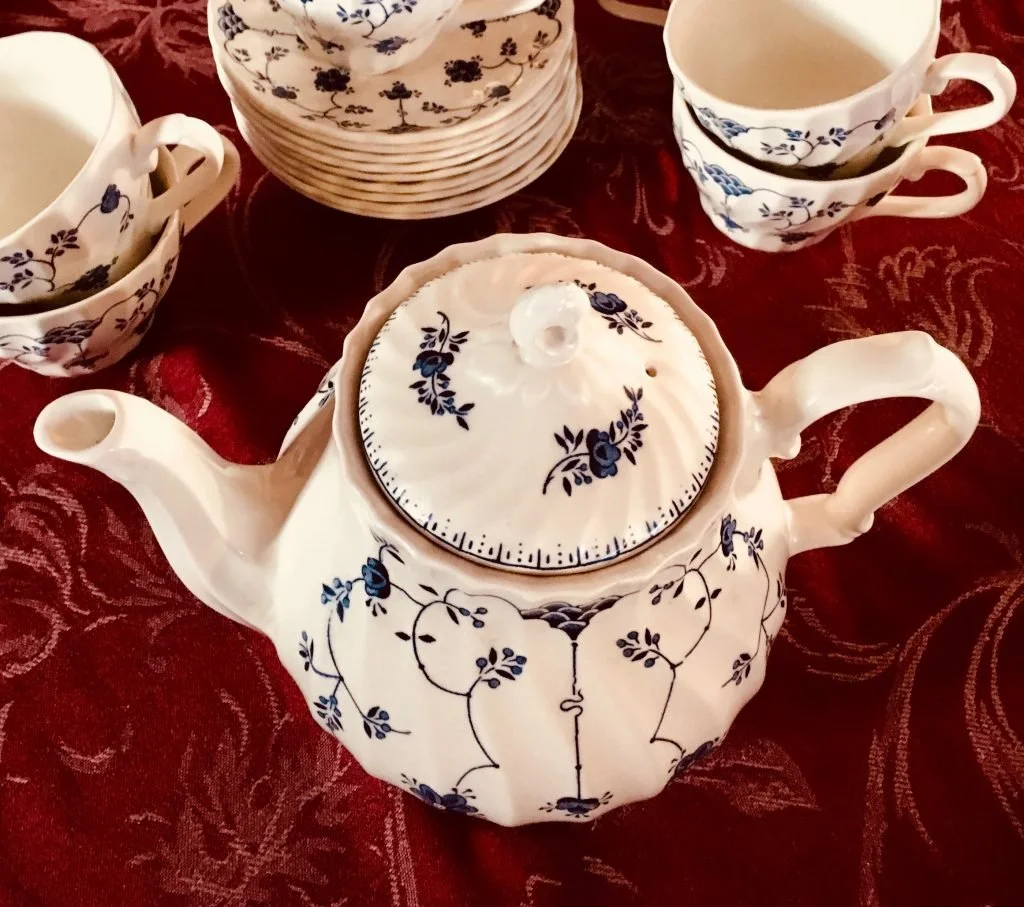Choo-Choo
On Boxing Day, December 26th, I held what has now become a studio tradition: the annual Christmas Tea for former students home for the holidays. It was a grey day, snow falling intermittently throughout the afternoon, perfect weather for a tea party. For two hours, my living room was full of now grown-up kids, who sat around drinking copious pots of tea, eating cookies and talking about their current lives. The latter took the form of the old Five Fun Facts practice borrowed from performance classes. “Can we include a lie?” one person asked. She is headed to medical school in the fall. “Why not?” I said.
Most of these college and post-college age kids grew up together in the studio. Over the years, they attended dozens of performance classes. They are all well versed in the rules of Five Fun Facts. But unlike the tight structure of performance classes, the Five Fun Facts of the Christmas Tea is a bit of a free-for-all. Progress around the circle is not linear. We interrupt and ask questions. There are inevitable tangents.
I don’t know quite how it happened, but this year, someone mentioned her favorite practice technique. Everyone, it turned out, could cite a favorite practice technique. “Rhythms” was a popular one, as was “Ghosting” and “Tennis.” “I use Tennis when I’m studying chemistry,” said one student. Tennis? I had forgotten that one, but it apparently involved a complicated method of score keeping and keeping track of accurate repetitions. “Of course, our all time favorite was probably just playing it a lot of times right before the lesson,” one kid said.
The kids also had plenty to say about the subject of piano recitals. Several reminisced about particular recital woes involving the added pressure of a significant person in the audience or a bad practice week in the days prior to the event. “They were sometimes really, really stressful, but I still think they are a good idea,” said one twenty-something, who was quick to volunteer details about what she considered her “worst recital ever.” She spent last summer in Africa, causing me to wonder what it is about performances that feel more intense and scary than traveling to a third-world country alone. But I’ve been there too, remembering all too well numerous shaky performances in my own past. Indeed, sometimes it is hard to distinguish the difference between playing a Rachmoninov prelude and being chased by a tiger through the jungle.
But that these kids still wanted to talk about the rituals of piano lessons and practicing pleased me to no end. So, in honor of the former students, here is another practice technique to explore as the new year begins to pick up speed and rush headlong into a blur of busyness: Choo-Choo.
Choo-Choo is basically a fancy name for breaking a piece of music down into very small chunks and building it back up one train car at a time. This can be done many different ways: One can work from the “caboose”—the last measure, phrase, chord, or section of a piece—then add the penultimate train car, then the one before that and so on until an entire “choo-choo” of music has been sewn together. One can start at the beginning or the middle of a piece and attach one train car at a time. The idea is that breaking the music up into very small chunks not only organizes the piece differently in our brains, but it forces us to reconcile the transitions between sections very deliberately. In my studio, “Choo-Choo” is our shorthand way of saying, “Time to break this piece apart and put it back together one chunk at a time.”
With the holidays behind us, the leisure of tea parties is now only a distant memory. My former students have returned to their lives scattered across the country. They are doing good things: working on campaigns for gun control legislation, traveling to Africa, applying to medical school, studying physics and political science, anthropology and art history. Their lives are very different from one another, but even so, they find that they still share a common language. And once a year, they crowd into my living room, drink peppermint tea and talk about tennis, ghosts and trains.
